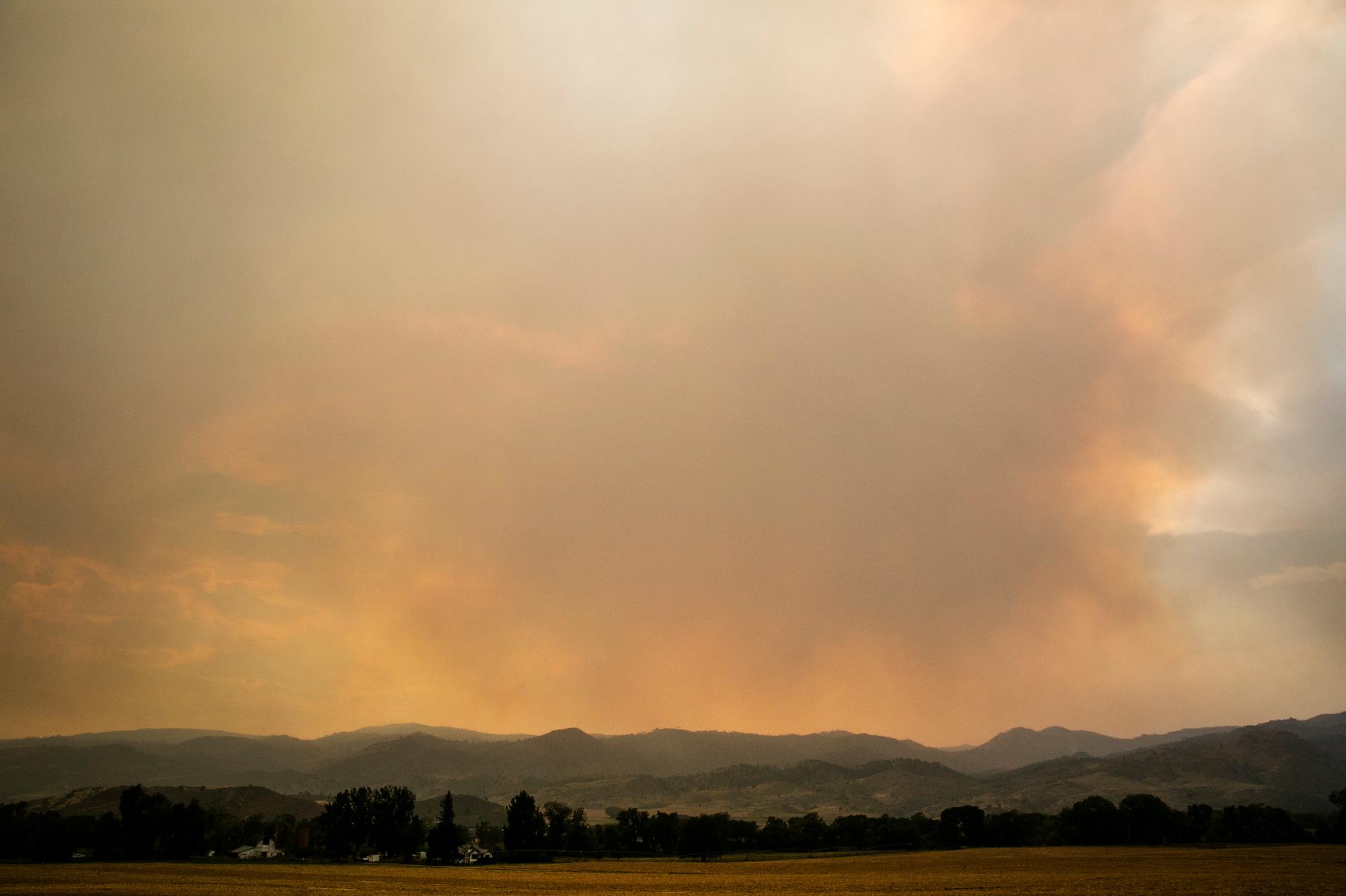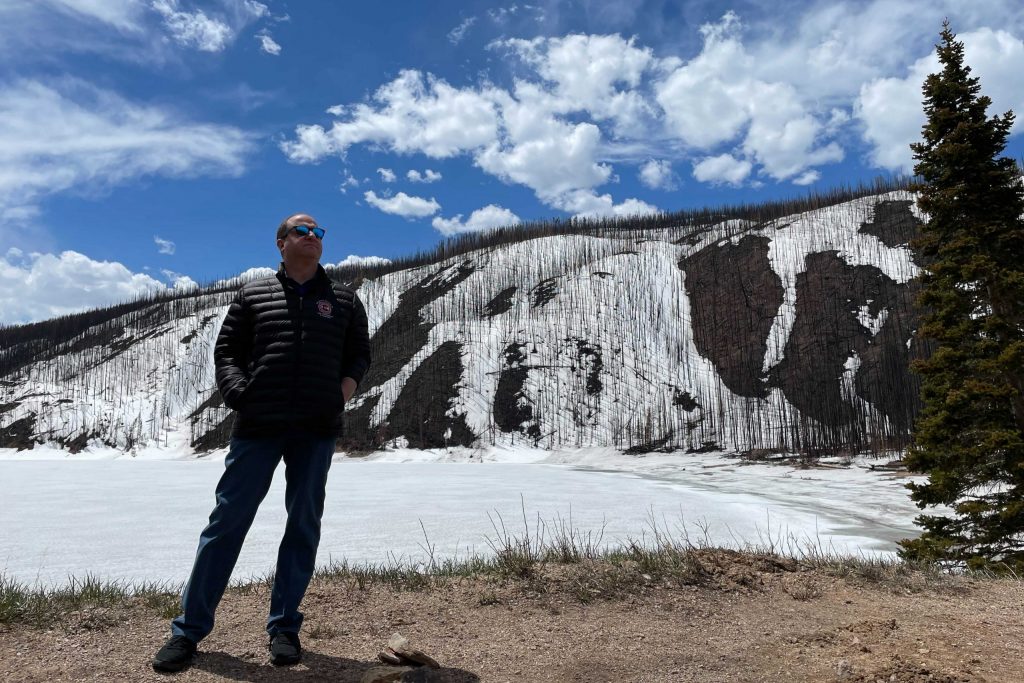
Charred tree trunks rise from the mountains along the burn scar of the Cameron Peak Fire, a scene so alien one Larimer County commissioner could only describe it as a “lunar landscape.”
Colorado officials hope this sight — the aftermath of the largest wildfire in state history — leads the federal government to pump more dollars into preventing fires and dealing with their effects.
Gov. Jared Polis and leaders from all levels of government toured the burn scar along the Cache de Poudre River Friday. The group included U.S. Secretary of Agriculture Tom Vilsack, as well as U.S. Rep. Joe Neguse and U.S. Sen. Michael Bennett, Democrats who have emphasized wildfire prevention and the restoration of public lands during the first months of the Biden administration.
The Cameron Peak Fire ignited in August 2020 and burned more than 200,000 acres and 469 structures, according to the U.S. Forest Service. People in the area have been in recovery mode ever since, rebuilding, inspecting the landscape and protecting homes and roads against flooding.
Ninety percent of the area burned by the fire was in federal land, Polis said, adding that the visit was an opportunity for Vilsack to learn about the recovery efforts and ways to address the risk of fires in public lands.
“I think we finally have a partner in the federal government rather than an antagonist with regard to bold climate policy,” Polis said.
One of the main concerns is the degradation of water quality in reservoirs inside the burned areas. The group visited Chambers Lake, a reservoir threatened by eroding ash and sediment.
Crews are considering using helicopters to drop mulch embedded with seeds that can establish roots and prevent erosion from flowing into the reservoir, said Sean Chambers, director of water and sewer utilities for the city of Greeley, which owns several reservoirs affected by the fire.
“If that’s not undertaken, we expect to see a lot of sediment come into these reservoirs,” Chambers said. “That creates ancillary problems with dredging and cleanup down the road, and it prevents us from storing a key aspect of our water supply.”
Local officials are also trying to find funding to speed up and broaden their work. A U.S. Forest Service program would allow them to plant thousands of seedlings in the mountains, but soils are still not ready to be replanted.
Chambers also said legislation under consideration by Colorado lawmakers, such as Senate Bill 240, could provide millions toward mitigation and recovery efforts.

Neguse, who represents the district scarred by the Cameron Peak Fire, is leading other efforts as chair of the National Parks, Forests and Public Lands subcommittee. He said his 21st Century Conservation Corps proposal would invest more than $40 billion in creating reforestation and mitigation jobs.
“I actually think the solutions are fairly straightforward, they’re common sense,” he said. “It’s investing dollars in our national forests, it’s building partnerships and coalitions to address reforestation issues, to do better forest management. And I think that those are eminently feasible.”
Both Neguse and Polis said massive wildfires like the Cameron Peak, East Troublesome and Pine Gulch fires last year are a direct result of climate change. Polis released a roadmap to bring down greenhouse gas emissions at the beginning of the year, and state Democrats proposed their own bill to enforce those reduction goals.
Polis doubled down on his earlier comments that he did not support that bill and would threaten a veto if it reached his desk.
“That bill is a step backward on climate and would really reduce our ability to be able to lead on climate,” he said.
Wildfires have already popped up in parts of the West. Colorado is preparing for an intense season that could reach across the Western Slope by July, according to state fire officials.
- After Years Of Tough Lessons, Spanish-Speaking Communities Rise To Get Wildfire Information Fast And In Their Language
- How These Scrap Wood Startups Could Help Colorado Fight Wildfires
- Foresters Want More Prescribed Burns To Avoid Future Wildfire Disasters In Colorado. But The State Forest Service Isn’t Allowed To Conduct Them
- When The Wilderness Meets The Urban, Homeowners And Neighbors Are On Their Own Against Wildfires
- Stronger Building Codes And Other Rules Can Save Homes From Wildfires. So Why Doesn’t Colorado Have A Statewide Law Mandating Them
- Colorado’s East Troublesome Wildfire May Signal A New Era Of Big Fire Blow-ups








